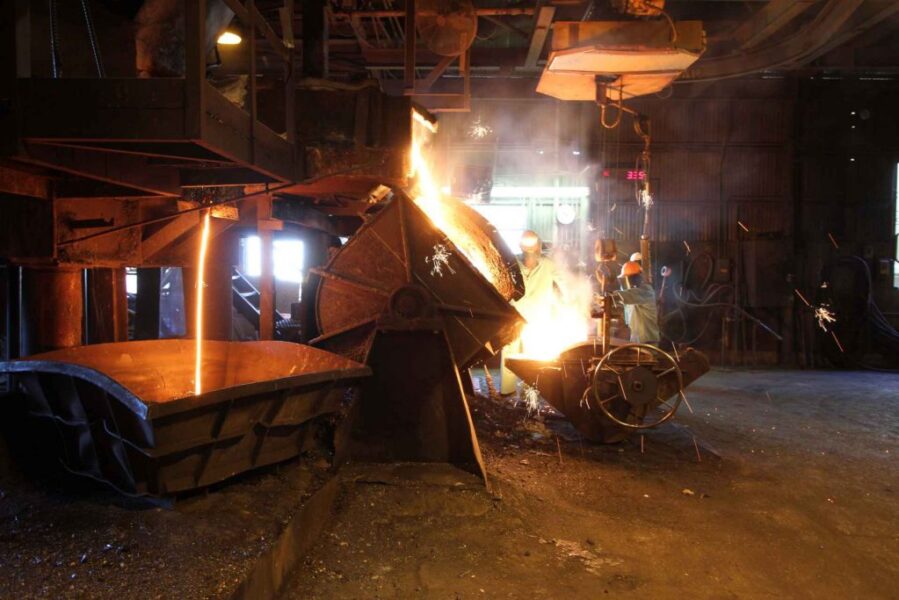Gray cast iron is a ferrous alloy with relatively high levels of carbon and silicon elements. Its crystalline carbon chemical composition creates a graphite microstructure within the metal, giving the material its gray appearance and name.
However, far beyond the color, gray iron’s unique composition gives the material some highly beneficial mechanical properties. Furthermore, by carefully controlling the various heat treatment and casting processes, we are able to fine-tune the material’s mechanical properties for specific products, improving strength and/or optimizing other attributes.
3 Ways to Enhance and Optimize the Mechanical Properties of Gray Cast Iron
Custom Heat Treatment
Heat treatment processes like annealing, normalizing, quenching, and tempering can be applied to gray iron castings to alter their microstructure and improve their mechanical properties. Heat treatment can enhance strength, ductility, and toughness by controlling the cooling rate and temperature during the process. For example, in cases where high hardness is required (e.g. for enhanced durability or wear resistance), we can quench the metal at temperatures under 290°C to produce a more optimized grain structure and uniform hardness.
Controlled Graphitization
Carefully controlling the casting process lets us modify the size, shape, and distribution of graphite flakes within the material microstructure. Properly controlled graphitization can enhance the casting’s strength, machinability, and resistance to thermal stresses. The cooling rate during solidification plays a crucial role in determining the mechanical properties of gray iron castings. By controlling the cooling rate, either through the design of the casting mold or the addition of cooling media, we can achieve the desired mechanical properties of each unique product or application.
Alloying
Iron, carbon, and silicon are the main elements of gray cast iron material. By adjusting the composition and adding alloying elements such as nickel, chromium, molybdenum, or copper, the mechanical properties can be modified. Alloying can improve strength, hardness, wear resistance, and thermal stability.
Achieving the Ideal Cast Iron Material for Each Product Application
Of course, the optimization of mechanical properties in gray iron castings often involves a trade-off between different properties. You have to consider the specific requirements of your products and application to achieve the best balance, and most optimized material solution. At Acme Foundry, we are backed by more than 115 years of metallurgical experience, providing quality American casting services since 1905.

